Amber Cove Shore Excursion: Hands-On At A Women’s Chocolate Co-op
A hands-on cruise shore excursion at a women’s chocolate co-operative in the Dominican Republic covers the full chocolate cacoa bean to chocolate cycle and makes an impact in the community
Last updated June 2023
If your Caribbean cruise takes you to the Amber Cove port in the Dominican Republic and you are looking for an out-of-the-ordinary shore excursion, consider a hands-on experience at Chocal, a women’s chocolate co-operative. You’ll learn a lot about chocolate, from the planting of cacoa to the roasting of the beans to the magic of turning them into chocolate while making a difference in the in the community.
I went on this excursion when it was part of the offerings by Fathom, a cruise experience brand offering social impact travel. Fathom no longer exists, but the shore excursion does. It is available from Carnaval Cruise Line, Princess Cruises, and Holland America. This post is about my experience.
Chocal is a women’s chocolate-making cooperative in Altamira just outside of Puerto Plata in the Dominican Republic. The Dominican Republic is one of the poorest countries in the Caribbean and has a high unemployment rate. Altamira is a rural area with few jobs. Chocal was formed in 2007 and provides employment for over 20 women, women who are able to work close to home and family because of the cooperative.
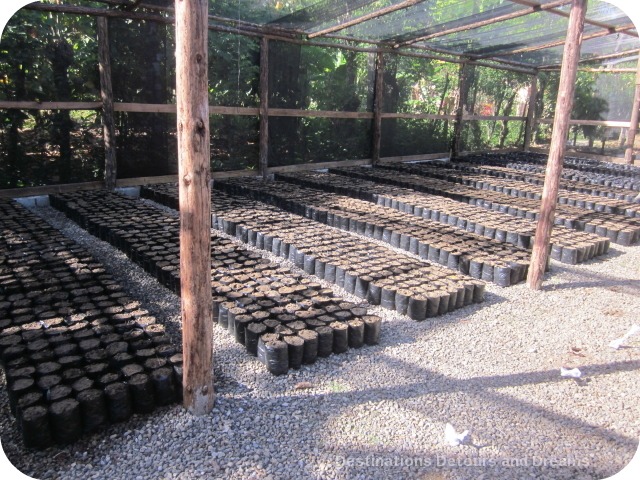
We started our day at a nursery, planting cacao seeds. The seedlings will be ready to be sold in three months. IDDI is working with a local organic farmers group to provide the seedlings to local farmers at lower prices. The trees start to produce fruit in three to five years and continue to produce for twenty-five years.
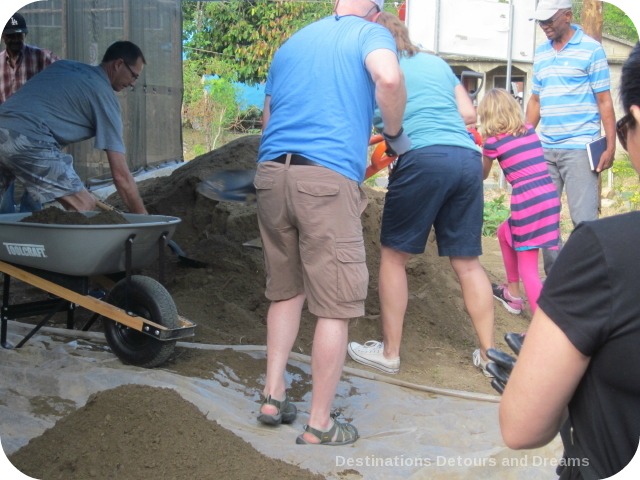
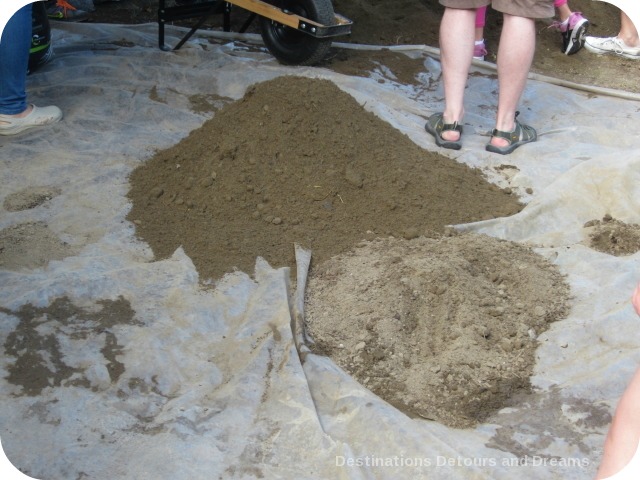
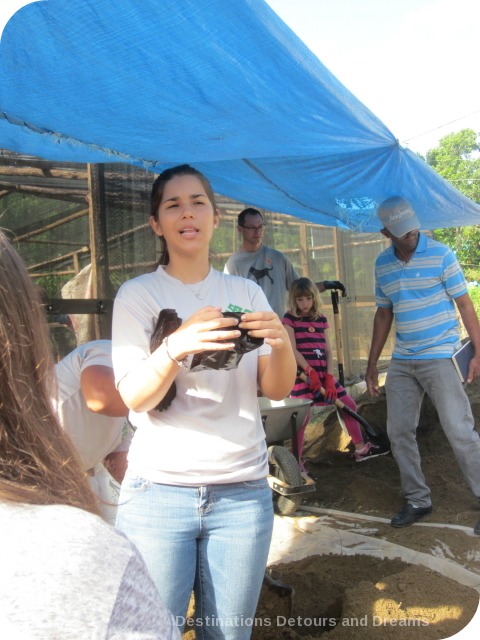
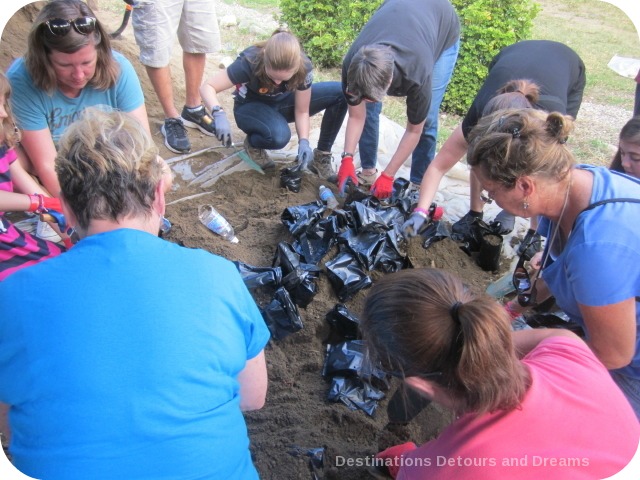
After we filled the bags, some of the group carried them into the covered part of the nursery, where others put seeds in and added them to the group of planted bags already there. I did not get a final tally of how many seed bags our group did that morning, but about halfway through our work the tally was 126.
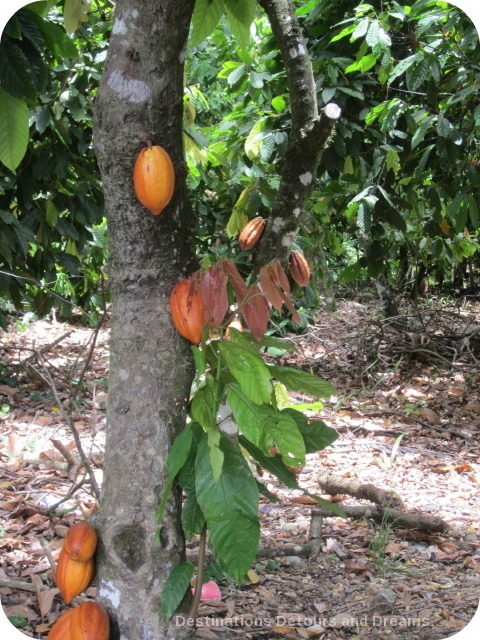
All chocolate starts with the cacao bean from the Theobroma Cacao tree. The tree only grows in tropical equatorial forests. The Dominican Republic is a major world producer of cacao and a leader in organic and Fair Trade cacao, much of which comes from small-scale farms.
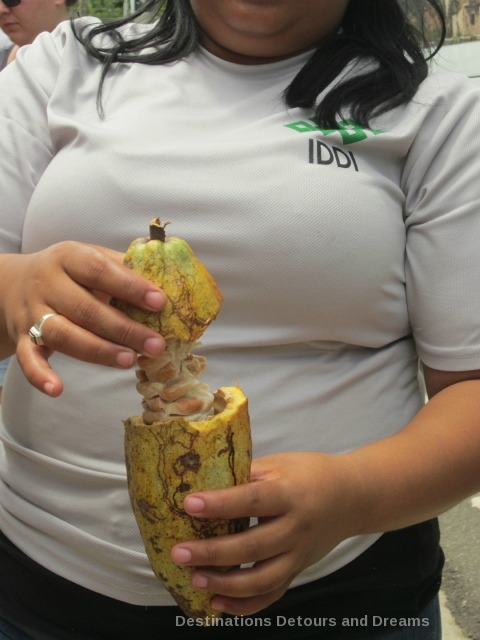
Ripe pods are removed from the tree and opened within one week to ten days to extract wet beans. The best way to open is with a wooden club. A machete can be used but it can also damage the beans. I’ve been told the white pulp surrounding the beans is quite tasty but I haven’t tasted it myself. The next step in the process is fermentation. The most common method is to enclose heaps of bean in banana or plantain leaves. The process takes about five days.
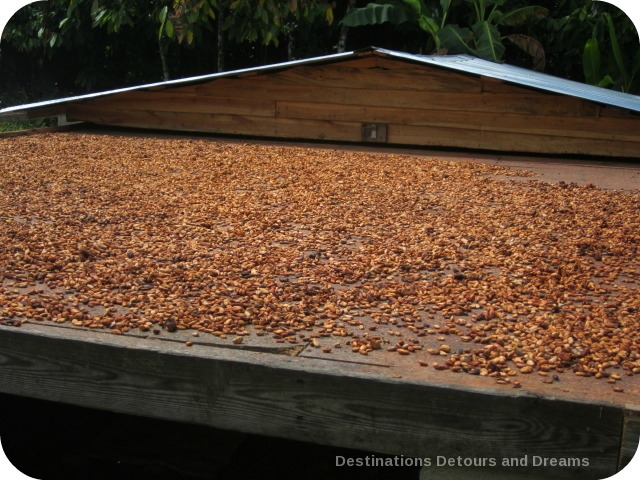
The fermented beans are then dried to reduce moisture from 69% to about 7.5%. Sun drying takes approximately one week with adequate sunshine. Dried and fermented beans can be stored in a cool, dry place for years. Chocal gets delivery of dried and fermented beans in 50-70 kilogram sacks.
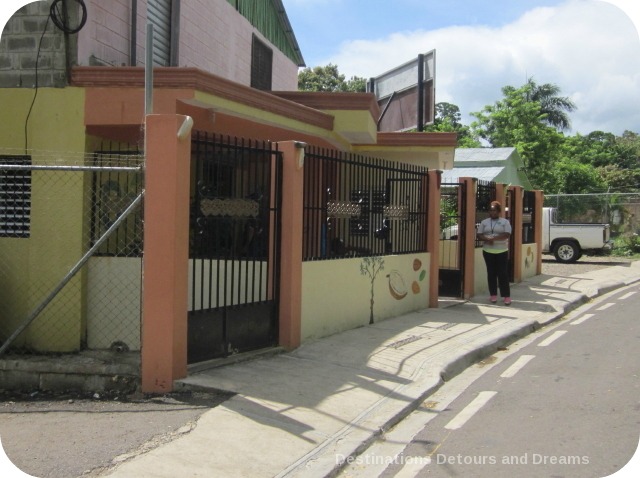
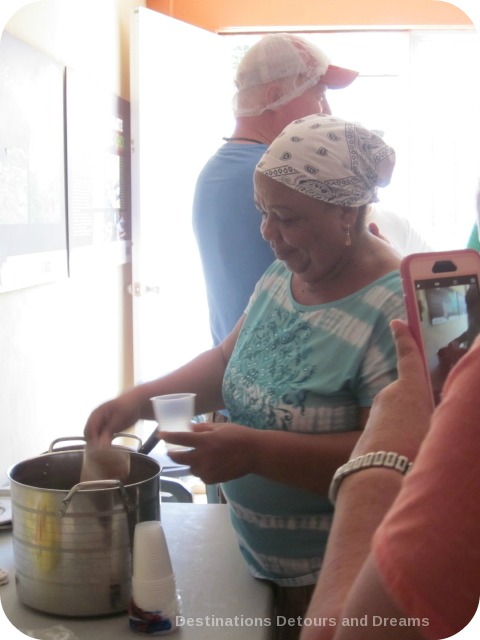
At Chocal, we worked on the most time-consuming and simplest tasks, tasks which we didn’t need to be chocolate-making experts to do. This gave the Chocal women more time to concentrate on the parts of the process requiring skill and expertise. A few women worked with us to ensure quality control and IDDI guides helped with translation.
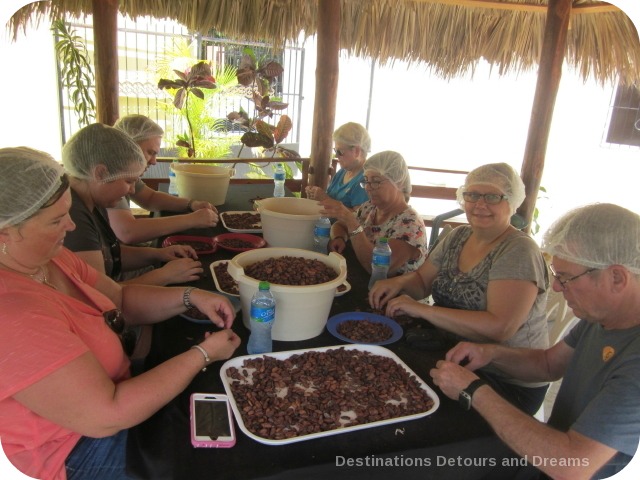
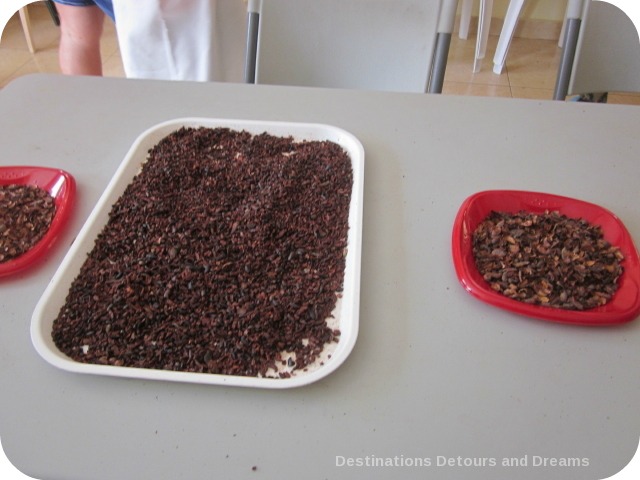
The art and magic of turning the nibs into chocolate through grinding, conching and tempering was done in the kitchen. We did not have access to that room for sanitary reasons, but we did get a chance to pour chocolate into molds.
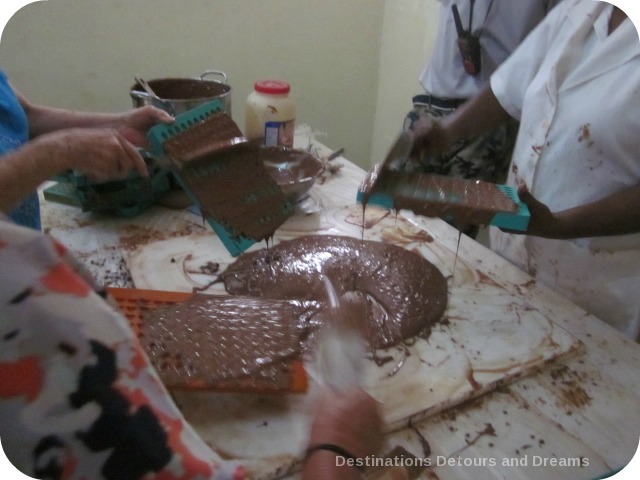
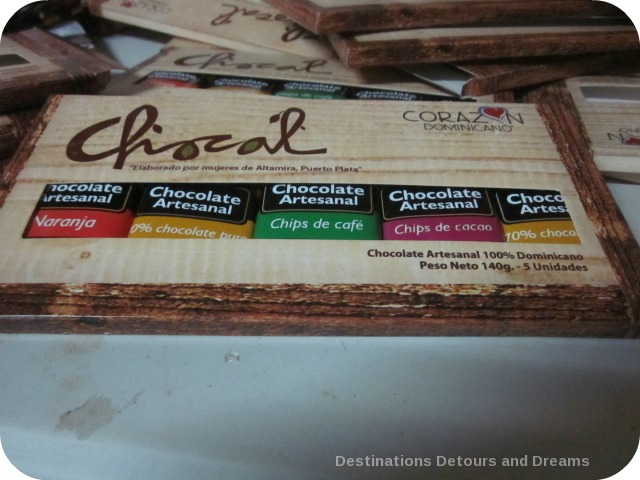
When Chocal started in 2007, it produced and sold cocoa balls. It later expanded to bars with the help of U.S. aid to acquire machinery and training from European chocolate-making experts. It now produces five kinds of bars – milk chocolate, orange-flavoured, one with cacao nibs, one with chocolate chips, and a 70% pure chocolate. They are working on a white chocolate but aren’t quite there yet. They also make chocolate wine. I had a taste of this white-coloured wine. It was a little bit on the sweet side but did not taste strongly of chocolate. Chilled, it would make a nice summer afternoon refreshment.
Chocal sells its bars to local grocery chains. The women currently work for minimum wage (8000 Dominican pesos a month which is roughly $174 U.S. dollars at July 2016 exchange rates). They are working to pay off their loans to get the business going stronger before taking more money for themselves or bringing on additional women.
During our couple of hours at Chocal, our group of 25 people sorted 125 pounds of nibs and packaged 820 chocolate bars. Perhaps our biggest impact took place in the attached store – our group bought a total of $254 U.S. dollars worth of product.
It felt good to be able to help the community, even in a small way, and I learned a lot about the chocolate process.
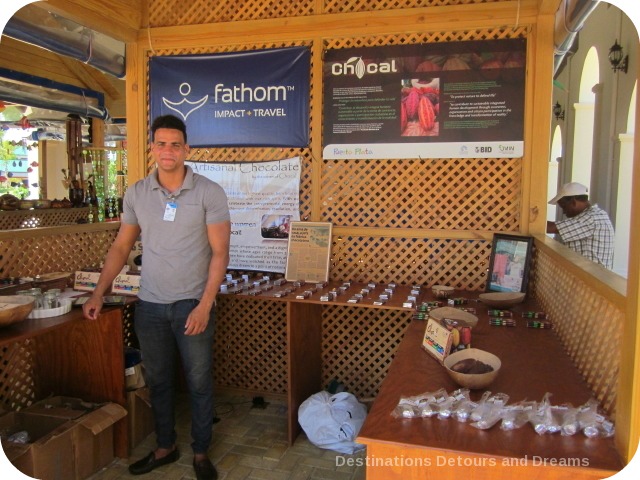
PIN IT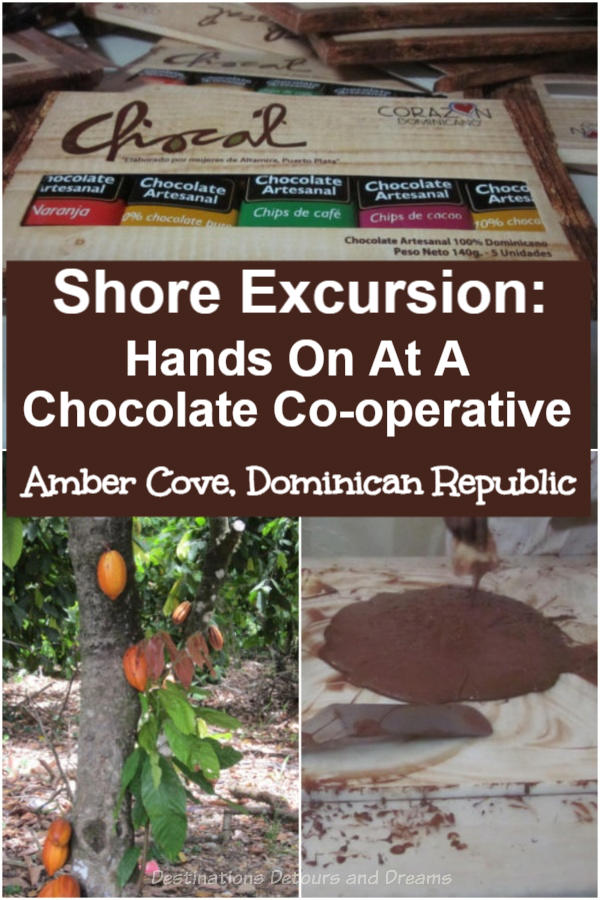
Never miss a story. Sign up for Destinations Detours and Dreams free monthly e-newsletter and receive behind-the-scenes information and sneak peaks ahead.

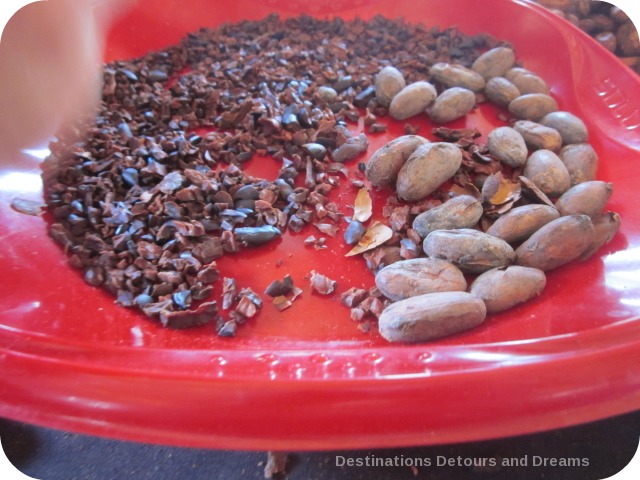
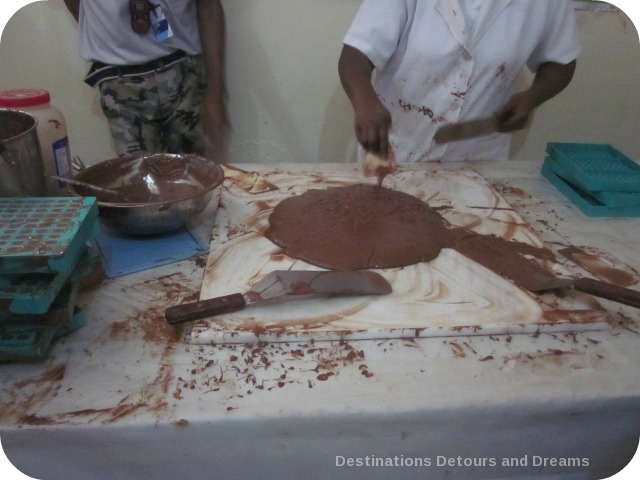
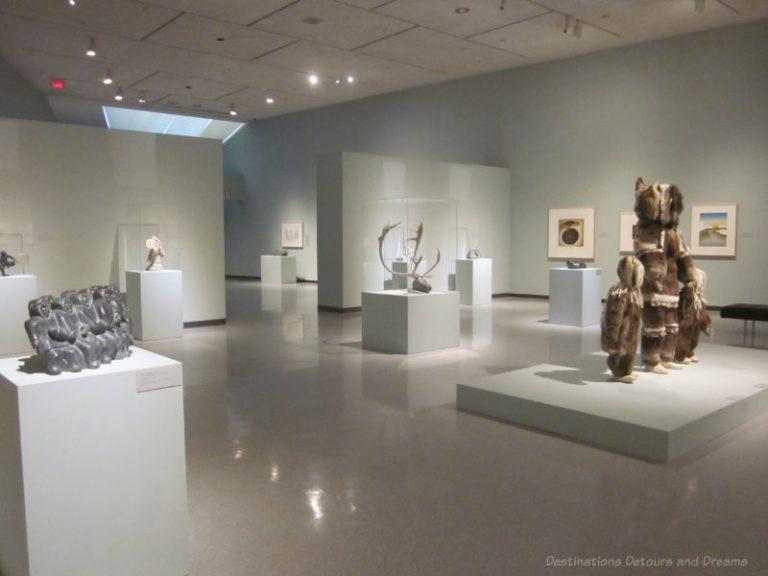
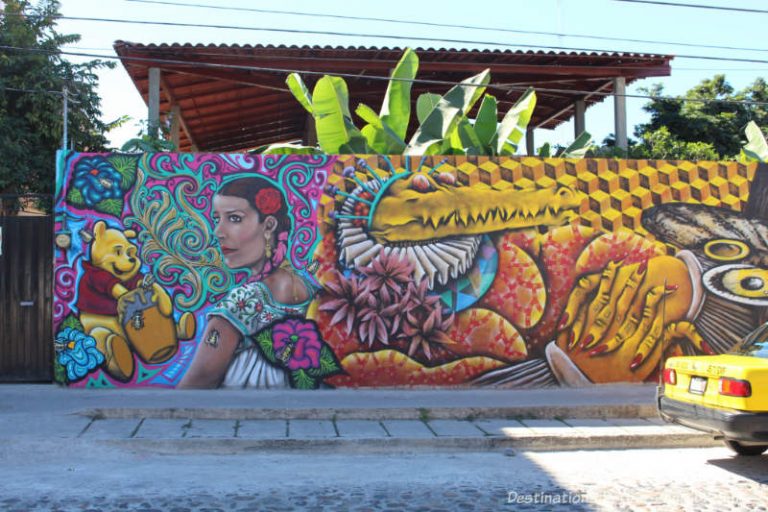
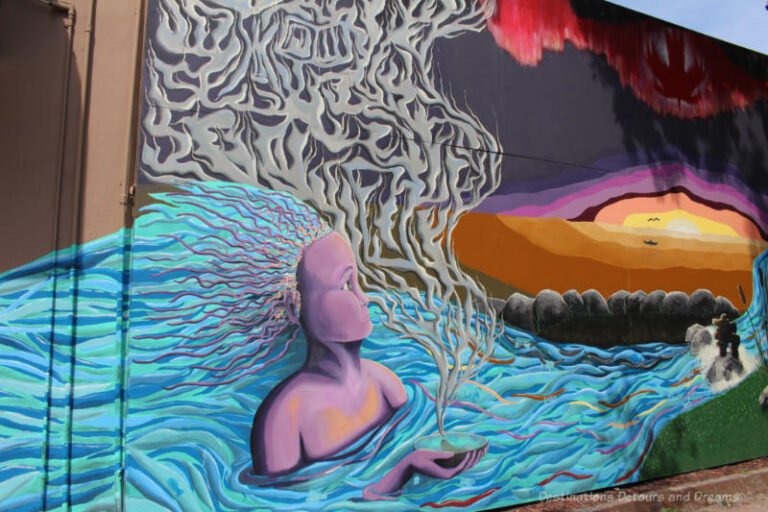
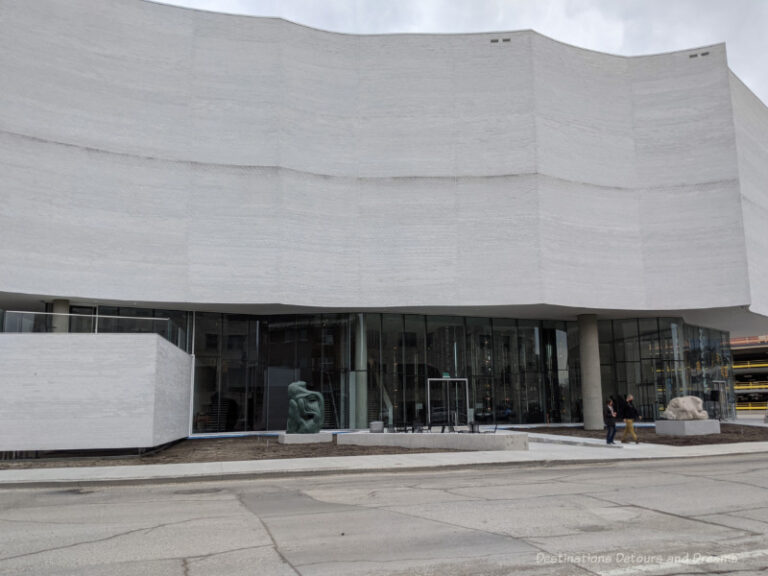
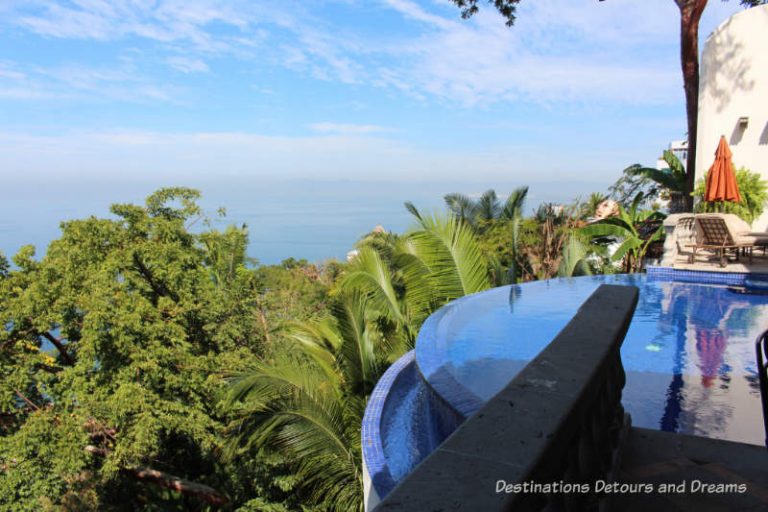
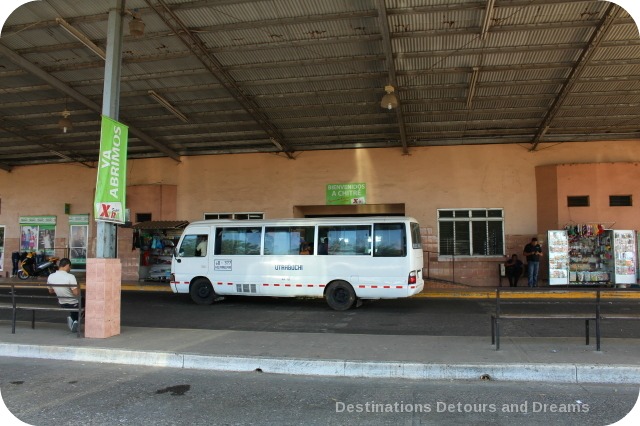
Very interesting. I learned so much about the origins of chocolate from this post. Thanks, Donna. And as always, great photos. It is nice to hear about efforts to improve the lives of DR’s people.
Thanks Linda.
Nice to add something meaningful fo a cruise. Looks like you had a great experience. Thanks for sharing it.
Ken, it was a great experience.
Glad you enjoyed working on the chocolate cooperative, Donna. Nice pictures that give a positive impression of the activity.
Catarina, I learned a lot doing this.
I learned a lot from this post. It’s so nice to read about your experience. It makes me want to buy from smaller chocolate manufacturers instead of the big companies. Thanks for sharing.
Sabrina, I certainly gained a better appreciation for all that goes into producing chocolate.
This was one of your most impressive trips yet, I think! What a great combination of learning something really interesting while making a valuable contribution. Kudos to you and your group for making a difference.
Thanks Jacquie.
Good for you! An interesting post, and looks like it was fun. So important for us chocolate lovers to learn about the people who grow and produce it. Cheers.
Thanks J.B. It was definitely a learning experience.
This looks like such a wonderful experience Donna! I’m not a chocolate fan like pretty much everyone else on the planet, but I certainly appreciate the craft and especially what these women are doing to build their business. Thanks!
Marquita, it is impressive what these women are doing.
This article makes you realise just how much is involved in making chocolate. The number of workers taking the cocoa through the whole process. We can become complacent with simply walking into a store and buying a bar of chocolate without giving a second thought to what has gone on in the background.
Phoenicia, I certainly learned to appreciate better what goes on in the background of making chocolate.
Enjoyed reading this whole post–and of course the great pictures–but especially loved reading that your group put such a dent in the shop before you left! That’s a great impact to have!
Rose Mary, and the store was running out of some things because the groups who had visited the day before had bought so much!
The fathom experience brings new meaning to the value of travel. To be able to interact with locals and do something that makes a difference to me if the real meaning of travel because such interaction and immersion is priceless.
Jeri, such interaction is indeed priceless.
We took a few tours on chocolate farms in both Nicaragua and Costa Rica and were totally fascinated by the whole production process of chocolate as well as the impact the work can make in small communities. I think volunteers get as much if not more from their experiences and, reading between the lines of your posts, I have a feeling you’ll be looking for other opportunities in the future. It’s a wonderful feeling to connect with people in their countries as you travel and learn that we all have the same hopes, fears and love for our friends and family. Anita
Anita, the work definitely makes an impact on the whole community. And yes, I think we will be looking for other opportunities.
Coming in and buying chocolate is probably one of the great ways to help a small little company. I love how Chocal gives women in the community a chance. It is great to hear about companies and really understand their purpose.
Also, I’ve never really thought about how chocolate is made. It is quite a process. And I cacao pod looks nothing like I thought it would.
I learn so much from your posts. I never knew there would even be such a co-operative available. Thanks for sharing this with everyone.
Very interesting post, Donna. Somehow, I’d missed it when you first put it up. I must have been travelling. I’ve referred my friend Suzanne Boles to your site as she is going to be participating in the Impact Travel program in early Jan, and in the exact same 3 activities that you did. She may be in touch with questions. I’m heading off to the DR myself in Jan and will be visiting a woman’s cocoa cooperative, but am not sure it is the Chocal one. It will be interesting!
Doreen, I’m happy to talk with Suzanne about the cruise and the activities. I’ll be interested in hearing about your experience at a DR women’s cocoa cooperative and comparing notes. Have fun.
Hi Donna: My trip to the women’s cocoa cooperative in El Seibo was quite different than yours as it is not as organized. The group is floundering a bit in getting themselves organized. But I have faith they will move forward as they are anxious to seek advice, and my host, who is an amazing entrepreneur has indicated he will help them if they have questions. I will be posting about my experience this week and I’m sure you’ll catch the URL online. Thx again for this great and detailed post.
My visit was organized by a well-established NGO, who may have helped this cooperative with organization, or at least the way in which we viewed and worked here. I hope El Seibo learns to organize or is able to succeed in spite of disorganization. There are lots of challenges for these organizations in the DR. I look forward to reading your upcoming post.
Donna, I am the owner of Chocxo Chocolatier in Irvine Ca. We have some small chocolate making equipment, molds, and other tools that we would be happy to donate to the entrepreneurial women. We have a a program of sorts to support source country entrepreneurs with training, equipment, and resources, and we even buy their products and proceeds support these causes. Can you help me by providing me with contact information for any of these coops or factories you visited, my contact is qzinana@gmail.com thanks
Hi Richard, I’ve sent you an email with information. I’m sure these women would appreciate your donation.